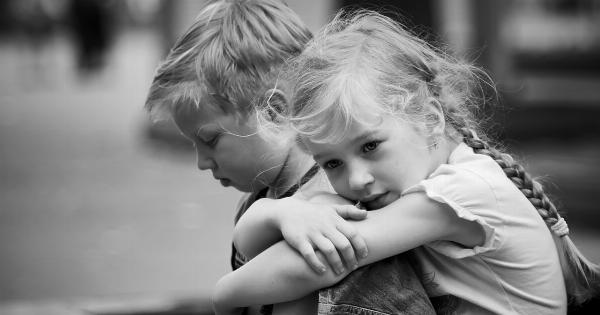Christmas break is supposed to be a time of joy and celebration, but when your child falls ill during this festive season, it can be challenging to know how to handle the situation.
While it may not be the most ideal scenario, with a little planning and preparation, you can ensure that your sick child still has a memorable and meaningful Christmas break. Here are some tips to help you navigate this difficult time:.
1. Prioritize Rest and Recovery
The first and most essential step in handling a sick child during Christmas break is to prioritize their rest and recovery. Allow them to get plenty of sleep and establish a comfortable and calm environment for them to rest in.
Avoid overstimulation and try to create a soothing atmosphere that will aid in their recovery.
2. Communicate with Family and Friends
Reach out to your family and friends and let them know that your child isn’t feeling well. This will help manage expectations for any planned holiday gatherings or events that your child may not be able to attend.
Most people will understand and appreciate your honesty, and it will also prevent any additional stress on your child.
3. Adjust Holiday Plans
Be prepared to adjust your holiday plans according to your child’s needs. This may mean canceling or rescheduling certain activities or events.
While it may be disappointing, remember that your child’s well-being should take precedence over any holiday traditions or obligations.
4. Keep the Spirit Alive at Home
Although your child may not be able to participate in all the usual holiday activities, you can still keep the spirit of Christmas alive at home. Decorate their room or create a small Christmas corner with some festive decorations.
Play Christmas music, watch holiday movies together, and engage in quiet activities such as reading holiday stories or doing Christmas-themed crafts.
5. Focus on Health and Nutrition
During this time, it is essential to focus on your child’s health and nutrition. Offer them nourishing foods that will support their immune system and aid in their recovery.
Incorporate fruits, vegetables, and warm liquids such as soups and herbal teas. Keep them hydrated and avoid unhealthy snacks or sugary treats that could hinder their recovery.
6. Consider Virtual Celebrations
If your child is feeling up to it, consider arranging virtual celebrations with family and friends. This way, they can still feel connected and included in the holiday festivities.
Set up video calls or schedule virtual games or activities that your child can participate in from the comfort of their bed.
7. Seek Medical Advice
If your child’s illness persists or worsens, it is crucial to seek medical advice. Consult your pediatrician and follow their recommendations.
They may suggest medications, provide tips for symptom management, or advise you on when it is safe for your child to resume regular activities.
8. Emphasize Emotional Support
Illness can be emotionally challenging for children, especially during festive occasions like Christmas. Provide your child with emotional support and reassurance.
Encourage them to express their feelings and let them know that it is okay to be upset or disappointed. Offer comfort and understanding, and try to make them feel loved and cared for during this difficult time.
9. Create New Traditions
While your original holiday plans may have been disrupted, seize this opportunity to create new traditions. Come up with special activities or traditions that your child can enjoy from home, such as a movie marathon or a cozy storytelling session.
These new traditions may end up being particularly cherished memories for your child in the years to come.
10. Take Care of Yourself
Lastly, don’t forget to take care of yourself. Caring for a sick child can be physically and emotionally draining, especially during the holiday season. Make sure to prioritize self-care and seek support from your partner, family, or friends.
Remember, you need to be well-rested and healthy to provide the best care for your child.






























